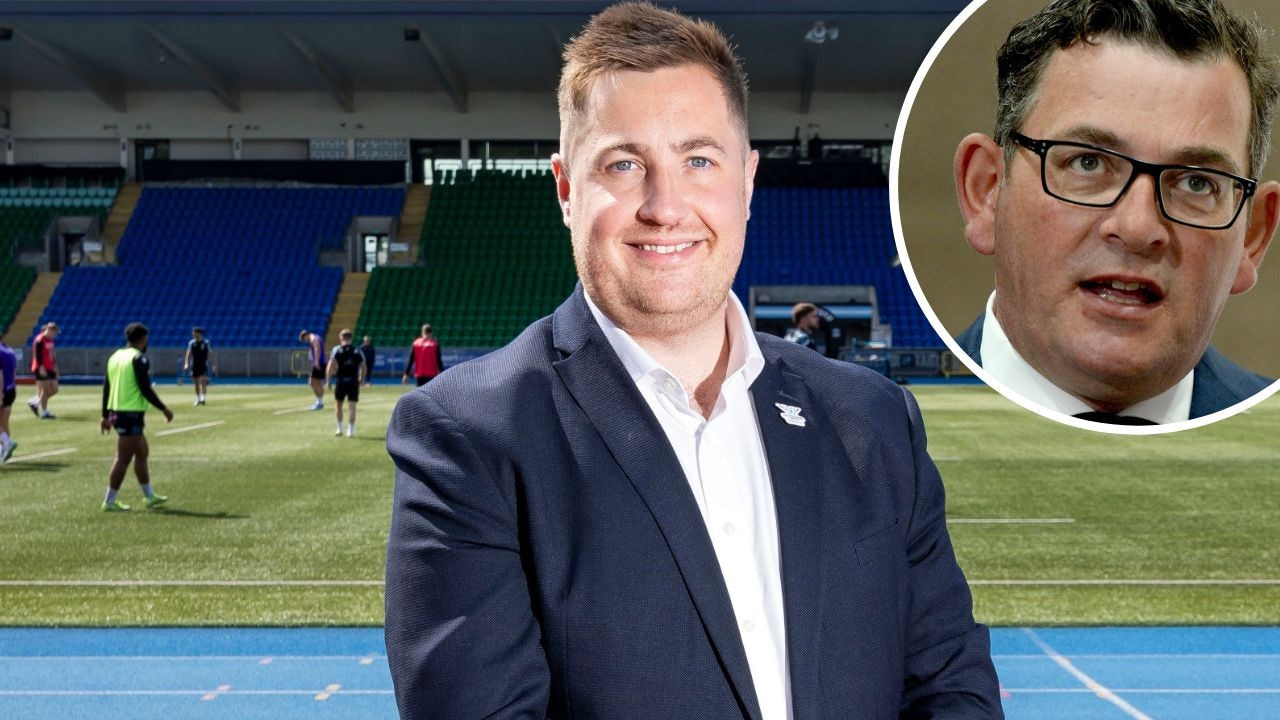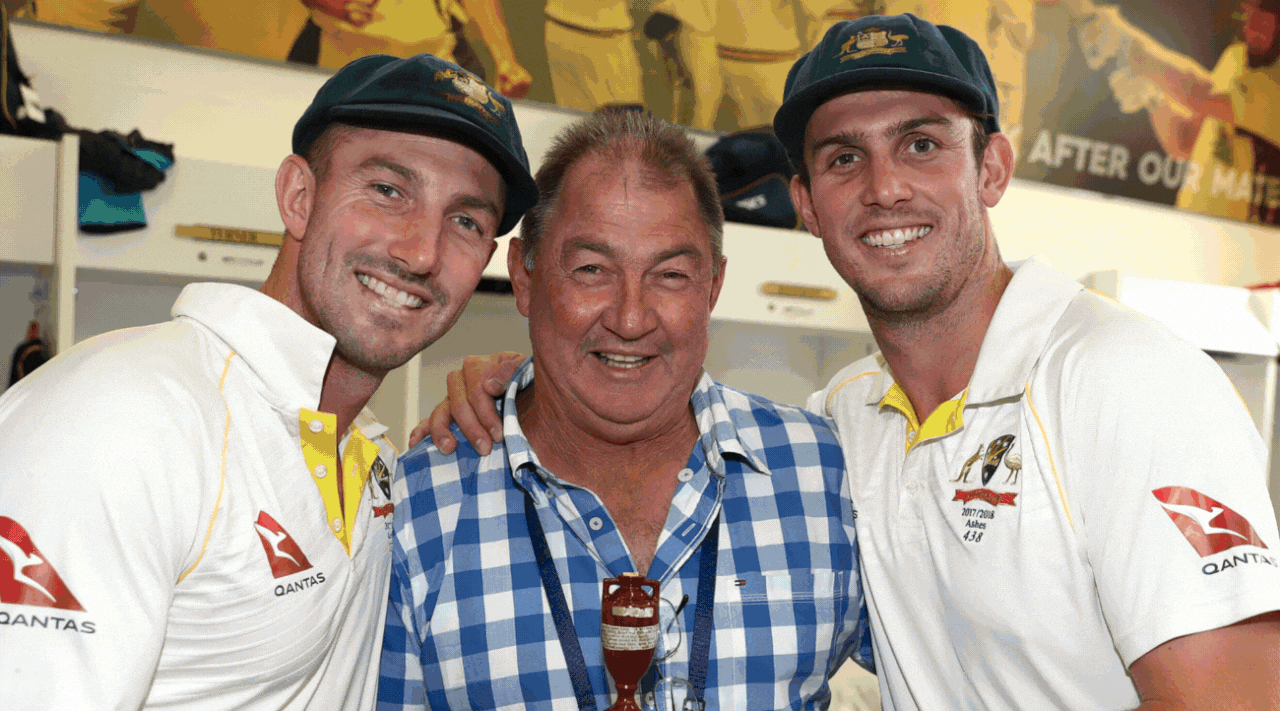Commonwealth Games 2022: Rohan Browning to continue preparations at World Championships
Aussie flyer Rohan Browning has history in his sights as he prepares to race on what is regarded as one of the world’s fastest tracks.
Comm Games
Don't miss out on the headlines from Comm Games. Followed categories will be added to My News.
Rohan Browning’s day of reckoning has arrived.
Twelve months ago the Sydney university student announced himself on the world stage, stunning the fastest sprinters on the planet to win the opening 100m heat of the Tokyo Olympics.
A career-best 10.01sec had Australia taking notice of the kid with the flowing mullet who had dreams of going where only one other person in his country had gone.
Since a creditable performance in the Olympic semi-final where he slightly missed the start — he came fifth in 10.09sec — the focus has been on improving the first 30 metres of his race which will open up the opportunity to break the magical 10-second barrier.
Stream Over 50 Sports Live & On-Demand with Kayo. New to Kayo? Try 14-Days Free Now
Could it happen on Saturday?
Browning will take to what is renowned as one of the fastest tracks in the world, Hayward Field Stadium, in Eugene, Oregon, for the 100m heats at the opening day of the world championships.
While illness and injury impacted his preparation earlier in the season, the 24-year-old has spent the last couple of months based in Rome at the same training facility as Olympic 100m champion Marcel Jacobs.
There were signs in his final lead-up run in Switzerland that the wheel had turned with Browning clocking an impressive 10.08sec — the first time he‘d gone quicker than 10.28sec in his four previous outings in Europe.
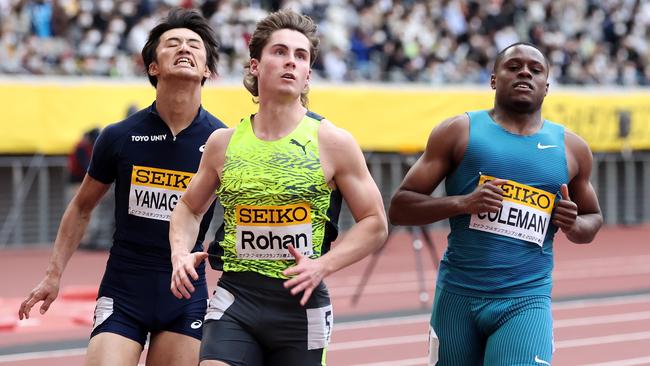
“Never peak too early,” was Browning‘s message afterwards.
Another of his Australian teammates who appears to be also peaking at the right time is Olympic 1500m finalist Ollie Hoare.
US-based Hoare made his career breakthrough in Tokyo and has gone from strength to strength since to the point where he has emerged as a medal prospect in one of the toughest events on the program.
Last month he put his stake in the ground by smashing the Australian mile record - he clocked an impressive 3min47.48sec - to finish second behind Olympic 1500m champion Jakob Ingebritsen at the Diamond League event in Oslo.
“I‘ve been competing against pretty much everyone that I need to compete against coming into the world championships and I’ve been able to get into a good mindset,” Hoare said.
“And there is only one guy that has really beaten me in a race this season. To be able to be on his (Ingebritsen) heels and only fade a little bit over the last 200 shows I‘m there in contention to maybe cause a bit of an upset.
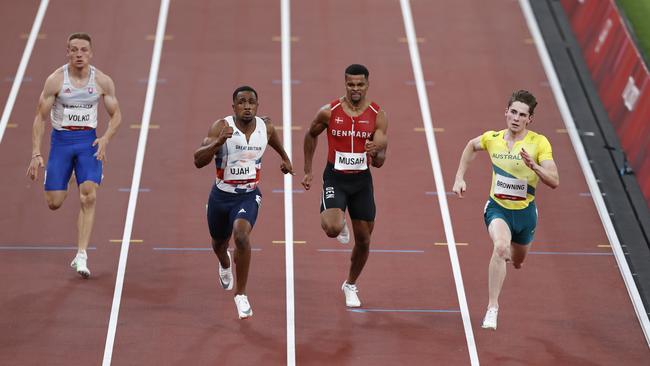
“It was a major turning point in my career, to be one of the guys around to be in contention and be competitive against someone like him was a huge step forward for me.”
Hoare, 25, will be joined on the start line for the 1500m heats on Sunday by national record holder Stewart McSweyn who showed he‘d recovered from complications with a Covid booster injection which had hampered his preparation.
McSweyn, who also made the Olympic final in Tokyo, recently finished fourth over 3000m in Stockholm to prove his fitness. His Melbourne Track Club teammate Matthew Ramsden is Australia‘s third representative in the event.
WORLD ATHLETICS CHAMPIONSHIPS
Eugene, Oregon
DAY 1 - Saturday
Medal alert - 20km walk Jemima Montag
Men‘s 100m heats (11.50am) : Rohan Browning, Jake Doran
Women‘s 1500m heats: (11.10am) Jessica Hull, Linden Hall, Georgia Griffith
Women‘s Pole Vault qualifying: Nina Kennedy
Men‘s Long Jump qualifying: Henry Frayne, Chris Mitrevski
,
DAY 2 - Sunday
Women‘s High Jump qualifying: Nicola Olyslagers, Eleanor Patterson
Men‘s 1500m heats (11.30am): Ollie Hoare, Stewart McSweyn, Matthew Ramsden
Women‘s 100m heats: Bree Masters
Men‘s Long Jump final
Men‘s 100m final (12.50pm)
Women‘s 1500m semi-final (12.05pm)
INSIDE BROWNING’S QUEST TO BECOME FASTEST-EVER AUSSIE
Rohan Browning was dreaming about being a golfer recently.
Not in the sense that his game could ever get to the professional level but more about the opportunities presented to the elite in that sport compared to his chosen pursuit of trying to be the fastest man over 100m.
“There is nothing quite like an Olympic sport because it is just so tough,” Browning says. “The opportunities are few and far between, I mean these championships come once every four years.
“Or two years (for world championships) is considered high frequency in our sport. Not like golf where you get four opportunities a year.
“We get few opportunities for redemption, we don’t have that privilege. You have to be as close to perfect as possible when these arrive.”
Stream Over 50 Sports Live & On-Demand with Kayo. New to Kayo? Try 14-Days Free Now
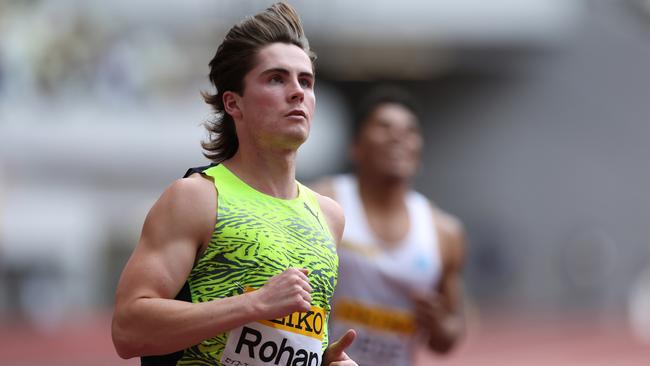
Over the next month, Browning is presented with a rare opportunity with back-to-back major championships beginning with the world championships in Eugene, Oregon, followed shortly after by the Commonwealth Games in Birmingham.
After going from promising junior talent to Australia’s most famous mullet, following a career-best 10.01sec heat victory at the Tokyo Olympics, the Sydney university student knows the possibilities that are within reach.
“It is a very unique and exciting prospect having a Commonwealth Games straight after a world champs,” he says. “On the one hand it is a unique challenge to have to back-up because the mental demand is so taxing at a major championships.
“I think the athletes who can see it as another opportunity and a bit of a pressure release will be well placed. Knowing you have got two bites of the cherry brings with it a sense of freedom.”
Browning knows a lot of the spotlight on him revolves around the magical 10-second barrier and when he’s going to become the second Australian to break it.
Several significant steps have been taken in this pursuit, including setting up a training base in Rome at the home track of reigning Olympic champion Lamont Marcell Jacobs.
Browning and Jacobs share the same agent, but an untimely injury to the Italian meant the pair didn‘t get the opportunity to spend too much time together.
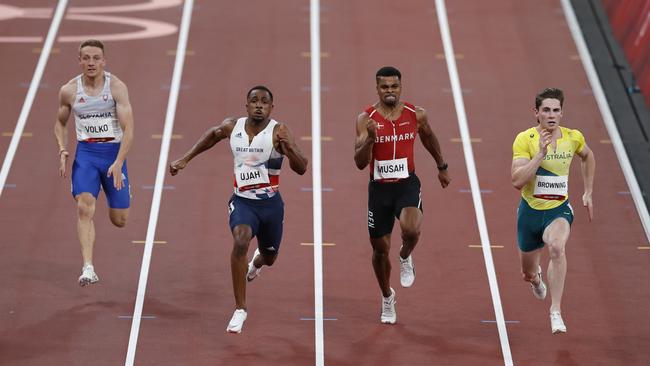
“It‘s his home town and his home track but he’s been on a different timeline recently because he injured himself so we haven’t really linked up too much,” Browning said.
“But it‘s been good just to be in that environment where there are so many good athletes and coaches, just seeing what other people are doing and how they train.”
Browning, 24, enjoys the analytics of his craft and thinks about how every body movement he makes impacts on his ability to run fast.
The wash-up from Tokyo with his coach, former Olympic triple jumper Andrew Murphy, centred on the first 30 metres of his race. He simply had to be better and quicker if he wanted to mix it with the big boys.
“I feel like I am close,” he says. “I’m working on a lot of things and trying to make my first 30 metres really world class. That has been a big focal point following the Olympics.
“I have been trying to race myself into a bit of shape and get my speed up through racing. I’m just trying to really execute that first 30 so once I freshen up for the majors hopefully I can be in the mix.
“I‘ve been happy with how that is coming along, I’ve been running a good 30 and a good 40 metres. My times haven’t been where I want them to be, but that is a lack of top-end speed and I think that is something which comes with a bit of freshness and a taper.”
He took a big step forward in Switzerland last week when he ran a season’s best 10.08sec – the first time he’d gone quicker than 10.28sec in his four previous outings in Europe.
On Instagram afterwards he posted a simply, yet poignant, message: “Never peak too early.”

Browning jokes he would never want the Chris Hemsworth level of fame where you get hassled 24/7.
He is being facetious because a lot more people know who he is than 12 months ago, although many still have some doubt.
“It was a real novelty factor when people would come up to you in the street and say hi,” he says. “It was actually more like people would kind of half-recognise me.
“You see them thinking he looks familiar but I don‘t know where from. Then I get: ‘Are you that runner? Do you run at the Olympics?’
“They wouldn‘t be certain who you are but they would be like, ‘I recognise you’.”
The reality for many Olympic heroes, and this is not just in track and field, is that the afterglow of the Games soon fades and transferring that brief time in the spotlight into something commercially is a battle.
Browning has a deal with Puma which got a little bump after his Tokyo heroics, supplements company True Protein came on board, while he‘s also done some work with new fashion label Alonza and luxury watchmaker Longines.
Life hasn‘t really changed too much since Tokyo, he’s upgraded his car but not to anything fancy and is still ticking over plans to have a law degree some time in the future.
He did have grand plans for the first half of 2022 on the track but was forced to temper them given illness and injuries conspired to force him out of the world indoor championships and the Australian titles.
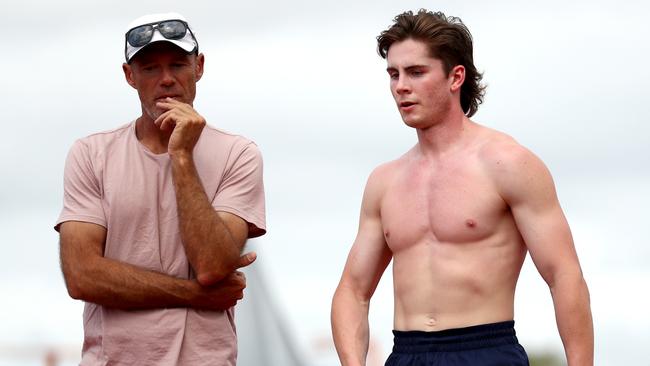
Browning then caught Covid in his first week in Italy.
“I would say this year so far has been a bit of a difficult one,” he says. “I’ve just had a lot of injury and sickness interspersed in really awkward intervals.
“As soon as I got into good shape there has been something which has chopped me down.
“I haven‘t run that many races and consequently we are trying to cram them into this European stint to race into a bit of form ahead of the world championships and the Commonwealth Games.
“One of the takeaways from Tokyo last year was what I really lacked in the lead-up to the Games is that racing. I was training in Australia, I went to Cairns and did a couple of meets there against some really good local talent but not against world-class racers.
“I needed to get battle-hardened for championships and that’s what I am doing now. It has been good, I’ve enjoyed it and I think the best way to learn is to jump in the deep end and that’s what we are doing.
“Competitions are just these opportunities where there are these moments of real vulnerability to test yourself and see where you are at.
“For me I just try to have this attitude of bringing the attitude of a student, to try to learn and develop. As long as you keep doing that you are on the right track.”
Peter Bol’s relentless quest for athletics legacy
- Jamie Pandaram
He threw the Floyd Mayweather jab.
Practised the Kobe Bryant jump shot.
Then Peter Bol found the shoe that fit. Spikes in fact, ones that he wears to break 800 metre records, the same ones he dons in corporate offices to give talks because those spikes have taken him all over the world.
And on the eve of the World Athletic Championships and Birmingham Commonwealth Games, the 28-year-old has more than medals in mind.
“I want to have a powerful impact on and off the track,” Bol said.
“I think we can do that. And that’s going to take medals and come through influence and inspiration to Australia.
“We can do that by winning medals and being the best version of ourselves.
“We’re almost there, we’ve just got to keep kicking along, and time will tell.”
Bol says “we” a lot. Because he doesn’t consider his pursuit an individual one, rather a collective with family, coach Justin Rinaldi, manager James Templeton, teammate Joseph Deng, and supporters.
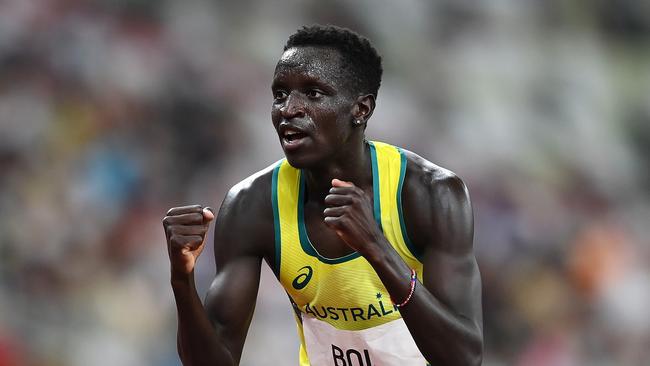
NEED FOR SPEED
Nagmeldin “Peter” Bol, the third-born child of Abdalla Bol and Hanan Kuku, recently broke his own Australian record for the 800 metres to claim second at the Paris Diamond League, running a flat 1.44, 0.11 seconds faster than his qualifying race at the Tokyo Olympics last year.
Bol, with the nation behind him, agonisingly fell short of an Olympic medal finishing fourth - Kenyan Emmanuel Korir won gold with a time of 1:45.06 in a slower, tactical final.
He thinks he can get down to 1.42 - two laps of a race track in 102 seconds.
“It’s nice to break your own records, but the goal is World Championships and Commonwealth Games,” Bol said.
“You almost have to contain that excitement, because you’ve got to reserve that energy for big championships, run fast in big races.
“But the most important thing is those championships for me. This was just part of the plan, I’m super excited to break my record less than a year from Tokyo last year, it’s just awesome.”
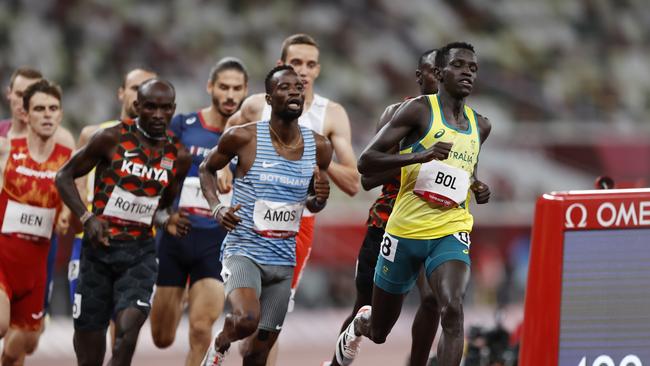
Bol has spent time preparing in Belgium. He heads to Seattle on July 10 for a training camp before the World Athletic Championships are held in Oregon from July 15-24.
From there, Bol heads straight to Birmingham for the Commonwealth Games, where the 800m heats start on August 3, before the final on the 7th.
“The goal is to do better than fourth, to get third, that is literally a medal,” he said.
“I definitely think I’m coming in much faster shape than the Australian record I broke in Paris.
“But the thing is, as you saw last year in Tokyo last year, sometimes it’s not about how fast you can go, it’s about finishing on the podium.
“Sometimes finishing on that podium is 1.45, so it could be a tactical race
“But time-wise, I think I can go pretty fast. I’m confident, I’m in a good space physically and mentally.
“My motto has always been, ‘Whatever it takes to win’. I was just a little short in Paris, obviously tactical errors, but I was definitely in it, I wasn’t completely out of it.
“And those are the things we like to have before championships, because you know what to look forward to and what to work on. It would be hard if you were winning all the time and thinking ‘What can I improve?’ You’d rather go in knowing ‘This is what I can do better’.
“It’s part of the plan, it’s good.”
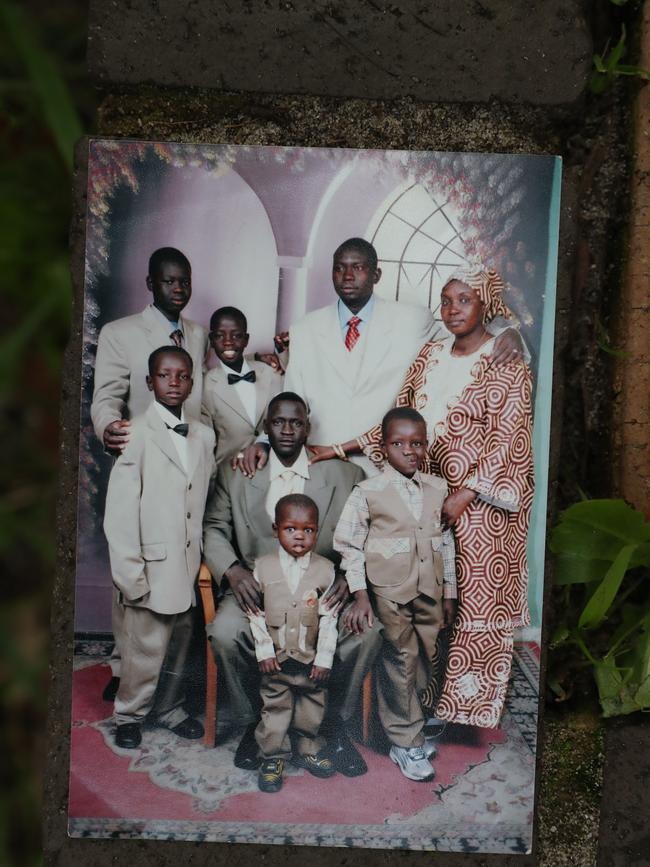
MIXED BEGINNINGS
Bol’s journey to running stardom took several sharp turns, in tune with his young life.
The Bol family – with a mother and father from different tribes – were forced to flee Sudan among a civil war 22 years ago.
They found shelter in Egypt’s capital, Cairo, for four years.
This is where the foundation of Bol as an athlete was formed, playing football on the streets alongside his brothers Mohieldin (32), Badreldin (30), Shamseldin (24) and Izeldin (19) - their sister Nyibol (16) was born once they arrived in Australia.
“I’ve got four brothers, and we’d always play soccer, I’d say soccer was my first love,” Bol said.
“It was just so fun, you could run forever, kick the ball anywhere, play for days. No one had social media, we didn’t have phones, and just being so present in conversations and people, they were powerful times that shaped my whole life.
“I was probably the least athletic of all my brothers. They’re all very talented, let’s just say I wasn’t that great.
“At a young age I always thought I’d be a professional athlete, but it was always in different sports.
“When I first moved to Australia, I really liked boxing so I thought my future was in boxing. I loved it, I’m a big fan of Muhammad Ali, Floyd Mayweather, it was my favourite, I was training at the PCYC in Toowoomba.
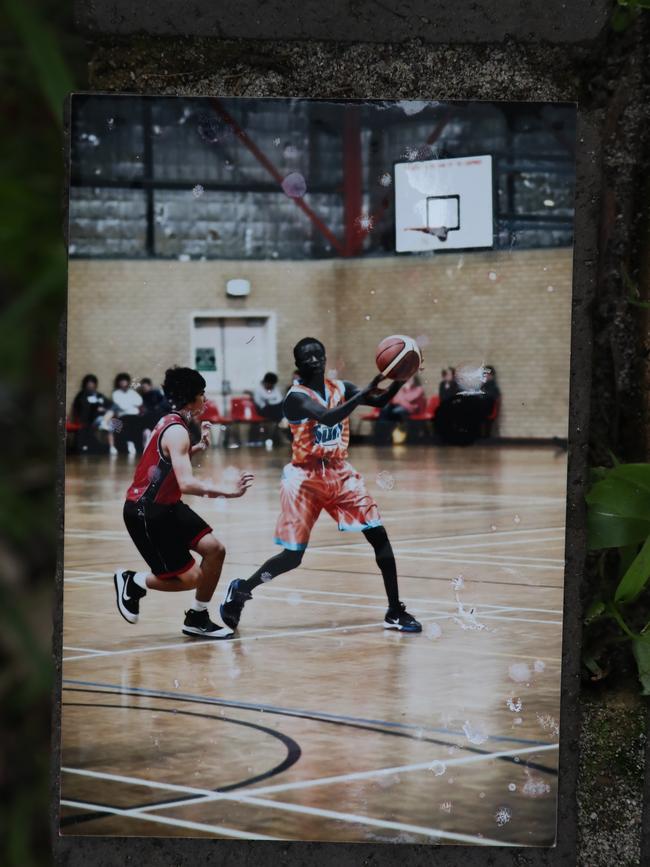
“Then when I was on a basketball scholarship [at Perth’s St Norbett’s College] I wanted to be a professional basketball player.
“Running just kind of fell into my hands. I’d never thought about being a professional runner, I didn’t even know running was a sport like that, when it first became compulsory at school I was like, ‘Why do we have to run for?’
“Five years after I took up the sport, I was at the Olympics in Rio, and I thought ‘OK, I’m going to take this seriously’. Actually 2015 was the year, I went to Paris, went overseas for the first time to compete, and my family said you should visit our relatives there.
“Seeing them inspired me. I came back and thought, ‘If I can just run this 800 metres a little faster, I can keep travelling the world and meeting up with family, so that’s what I’m going to work towards’.”
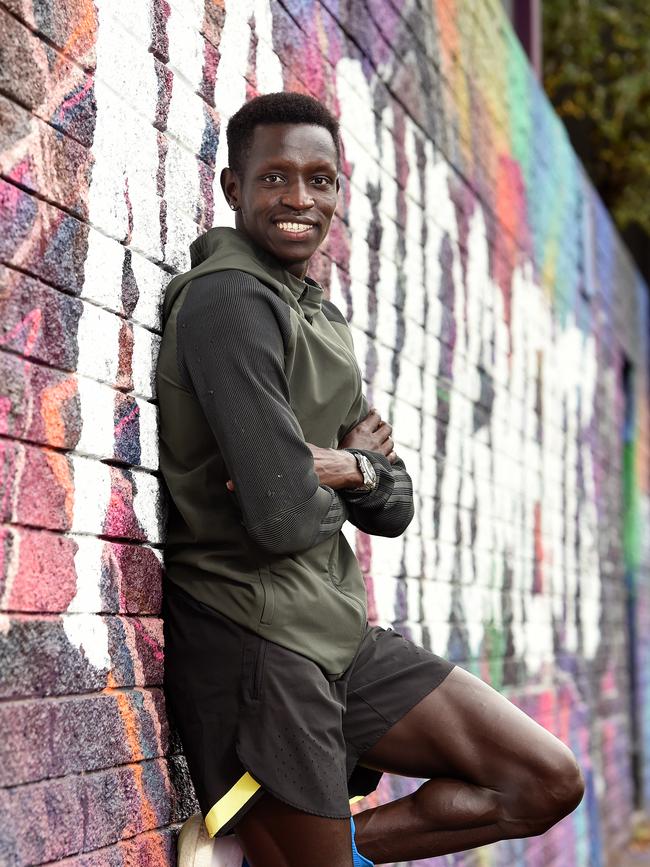
SHARED SUCCESS
When he recalls his childhood, Bol remembers “not having a lot, but at the same time having so much”.
“Having family on my side, we left Sudan, left Egypt, to go to Australia. People say ‘It must be hard’. But if you look from my perspective, as a kid you don’t really care about money and all those things, all you care about is your family,” Bol said.
“And I’ve been privileged enough to have my family throughout all my journeys, moving to Toowoomba, moving to Perth, it’s definitely shaped who I am and how I see life.
“If you see a timeline of my success, there’s always been people around that.
“I owe myself, and I owe them, the success we deserve and I know we’re capable of. When I say people, it starts with my family and then goes down to coaches and sponsors and all the people who invested in you during the journey.
“The goal is not to always be the best and win, the goal is to always do your best and have fun with it. That, as much as passion and experience outside the track, is very motivating.
“I love people and getting to travel the world and seeing different cultures, while only running two laps of the track, is quite inspiring.”
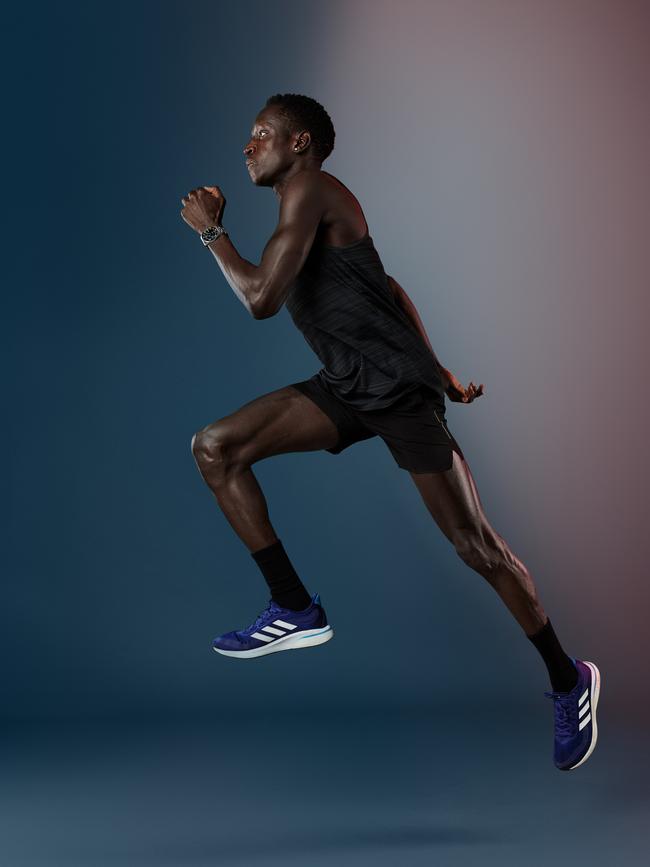
His Tokyo feats – becoming was the first Australian in 53 years to make an Olympic 800m final – thrust Bol’s family into the limelight.
“It gave a lot of my team the spotlight, my family had massive spotlight, my coaches, my team, one of my teammates Joseph Deng did a whole day of media, his story is just as important because he’s a part of it, my family’s story is important because they’re a part of it,” Bol said.
“Everyone fell in love with my family during the Olympic Games, and we get to showcase our culture too. We’re proud Australians, our background is South Sudanese and North Sudanese, we’re able to incorporate that back while embracing Australian culture.
“I embraced the spotlight, on top of that I used it as a powerful fuel for the next season, I came fourth you know? I wanted to come top three, I wanted to win the race, so there’s still boxes I haven’t ticked.
“In terms of impact, and the support that I have, I couldn’t be more grateful to the country and for my family and the people behind me.
“Instead of using all that to get distracted, I used it as motivation to keep going. What if we can get that medal in Paris [2024]? It would be an awesome story, and I want to write that story.
“That keeps me hungry.”
WATCH OUT
Such is Bol’s appeal, luxury Swiss watchmakers Longines signed him this week.
Bol has joined the Longines 2022 Commonwealth Games team – they’re the official timekeepers of the Games.
“It’s a brand I always wanted to align myself with so when the opportunity came by I was super excited,” Bol said.
“I’ve got the Hydroconquest watch, there’s about 2000 of them out for the Commonwealth Games, it’s stylish, I’ve worn it a few times. It’s graceful, stylish, it’s also being self-aware.
“Finding your own style is important.
“Time is the most important resource, because you can never get it back.
“As an athlete we’re always chasing the clock, times gives you the positive and negative experiences.”




